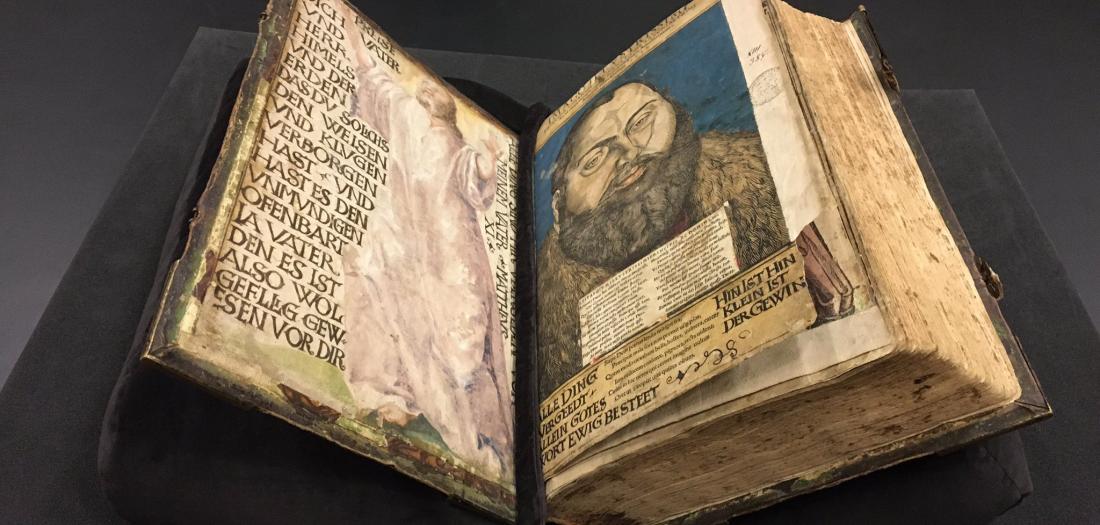Research Reports: Tracing the Tracks of the Embroider Hans Plock
Researching in Wittenberg
19.01.2021 | Project News

For one month, Carolin Geib, Germanist and research assistant at the TCDH, used the holdings of the Reformation History Research Library in Wittenberg (RFB) in order to explore the context and material for the project "Digitization of the Plock Bible" as well as to use the results for her PhD.
Since August 2018, Carolin Geib has been researching the two-volume edition of the Bible from 1541, which was printed by Hans Luft in Wittenberg and subsequently annotated by Plock. This splendid copy provides a unique insight into the Reformation period through Plock's handwritten comments on contemporary events with quotations from Luther and a number of glued-in picture elements from a very personal point of view.
In addition to the work on Plock's Luther Bible itself, the review of relevant secondary literature, which enables Hans Plock's Bible to be classified in the Reformation and the artistic environment, is particularly important. Therefore, the sources and secondary literature of the RFB offered Carolin Geib a good opportunity to deepen her research on the culture and history of the Reformation.
In addition, Wittenberg has an old stock of around 100,000 titles with a focus on prints from the 16th and 17th centuries, including an anthology with Reformation pamphlets that was in the possession of Hans Plock as well. By viewing this anthology, which is also annotated, Carolin Geib was able to intensify the analysis of Plock's linguistically valuable annotations and to promote comparisons with the Luther Bible.
Just like Plock's Luther Bible - although not nearly as abundantly annotated - the anthology shows the presentation possibilities of that time. With his introduction of printing with movable type, Gutenberg had just revolutionized media communication in Europe, so the innovation of printing could be used, and the tradition of late medieval manuscript culture could be maintained. The researcher is also fascinated by the research into Plock's books as a whole, which convey a great deal of information about the history of the book copies. As part of her research in Wittenberg, Carolin Geib wrote an article to the exploration of the book history of the anthology from a linguistic-historical point of view, which will appear in the yearbook of the Reformation History Research Library.
Contact person: Carolin Geib

